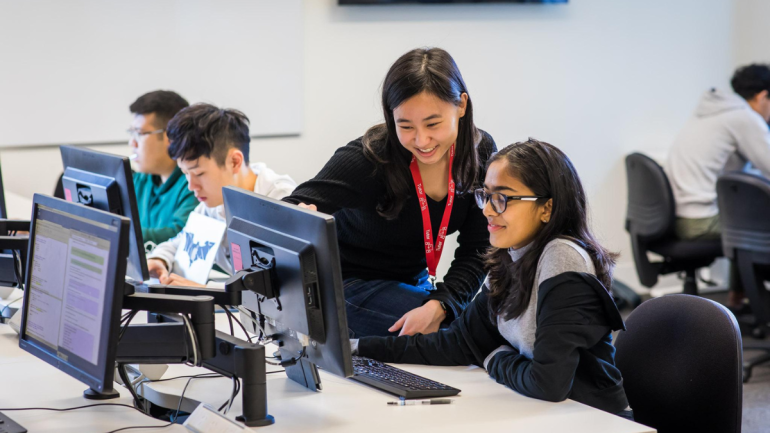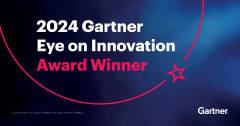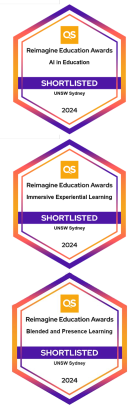Published 16 October 2024
Some of UNSW’s projects, led by the Educational Innovation teams within the Pro Vice-Chancellor, Education Portfolio, have recently received notable international recognition.
First up, the Academic Success Monitor (ASM) has been named winner of Gartner's Eye on Innovation Awards for Education 2024. Specifically, it has won one of only four awards in the scheme: Higher Education Innovation in Administrative Systems category.
Gartner is a global research and advisory firm that provides strategic insights, guiding organisations in navigating technology, innovation, and business trends to drive growth and transformation. Their education awards recognise innovative uses of technology to drive best-in-class initiatives, and the winners within each of the four categories were selected by a panel of senior education executives from around the world, out of what Gartner stated as a record-high number of applications.
The ASM uses machine learning and AI to deliver students, academics, and support teams personalised insights and support suggestions to empower student self-management, deliver insights to academics about their class engagement, and streamline support.
The ASM project was also one of five UNSW educational initiatives named finalists in another prestigious international scheme – the QS Reimagine Education Awards 2024.
These awards set out to celebrate pioneering pedagogical approaches that boost learning outcomes and employability, and honour the exceptional efforts of educators, institutions, and edtech startups in preparing learners for the challenges of the future.
The other four finalists in this scheme are all media & immersive projects led or supported by our PVCE Media & Immersive teams:
- TALIA, EyeSim and AI Conversation Sim are shortlisted in the Immersive & Experiential Learning category
- Diverse Horizons is shortlisted in the Blended & Presence Learning category.
More about those projects
TALIA
Talia is a tool that enables the creation of 360° environments as easily as using PowerPoint. Users can create an immersive environment by drag-dropping 360° images and videos, easily add hotspots, navigation and instructions for rich, engaging learning experiences for students.
EyeSim
EyeSim simulates a wide range of eye conditions from glaucoma and retinal detachment to colour deficiencies. Being able to experience these conditions in a range of virtual environments allows for a potent shift in the learning.
AI Conversation Sim
AI Conversation Sim sets out to allow academics to craft specialised scenarios aimed at helping their students learn specific skills related to conversations in their discipline areas. The students can then practice these simulated conversations through VR or Web interfaces that present a 3D environment and virtual AI agents that talk with the player in real-time.
Learn more about AI Conversation Sim
Diverse Horizons
Diverse Horizons: VR for Transformative Inclusive Education is led by Associate Professor Veronica Jiang, School of Marketing, and explores scalable, authentic learning that immerses students in the experiences of diverse groups, including people living with disabilities. The project aims to improve student empathy, enabling them to understand more about the lives of others, as well as create more inclusive marketing strategies.
An example of a project within Diverse Horizons is Riding with Amy: an interactive 360 video VR experience, which brings to life the world of a person with a disability.
Learn more about Riding with Amy
Learn more about Diverse Horizons*
*UNSW access only
Winners will be announced during the live in-person QS Reimagine Education conference, held in London on 9-11 December 2024 and all shortlisted projects will appear in the scheme’s public Innovations Directory.
"I’m incredibly proud of our team’s relentless drive to innovate and transform the higher education landscape in collaboration with our academics and students," says Professor Simon McIntyre, Director Educational Innovation.
"Being shortlisted for the Reimagine Education award in four separate projects is a testament to the groundbreaking work being done. These works not only push conventional boundaries to enable greater student and staff experiences – they represent globally leading innovative thinking that will create meaningful impact for the UNSW community. I deeply appreciate the efforts of everyone involved and am excited for what comes next."
Big congratulations to everyone involved in these projects. They provide our students with truly unique learning experiences, and it’s great to see their value being acknowledged by peers and education experts from around the world.
***


